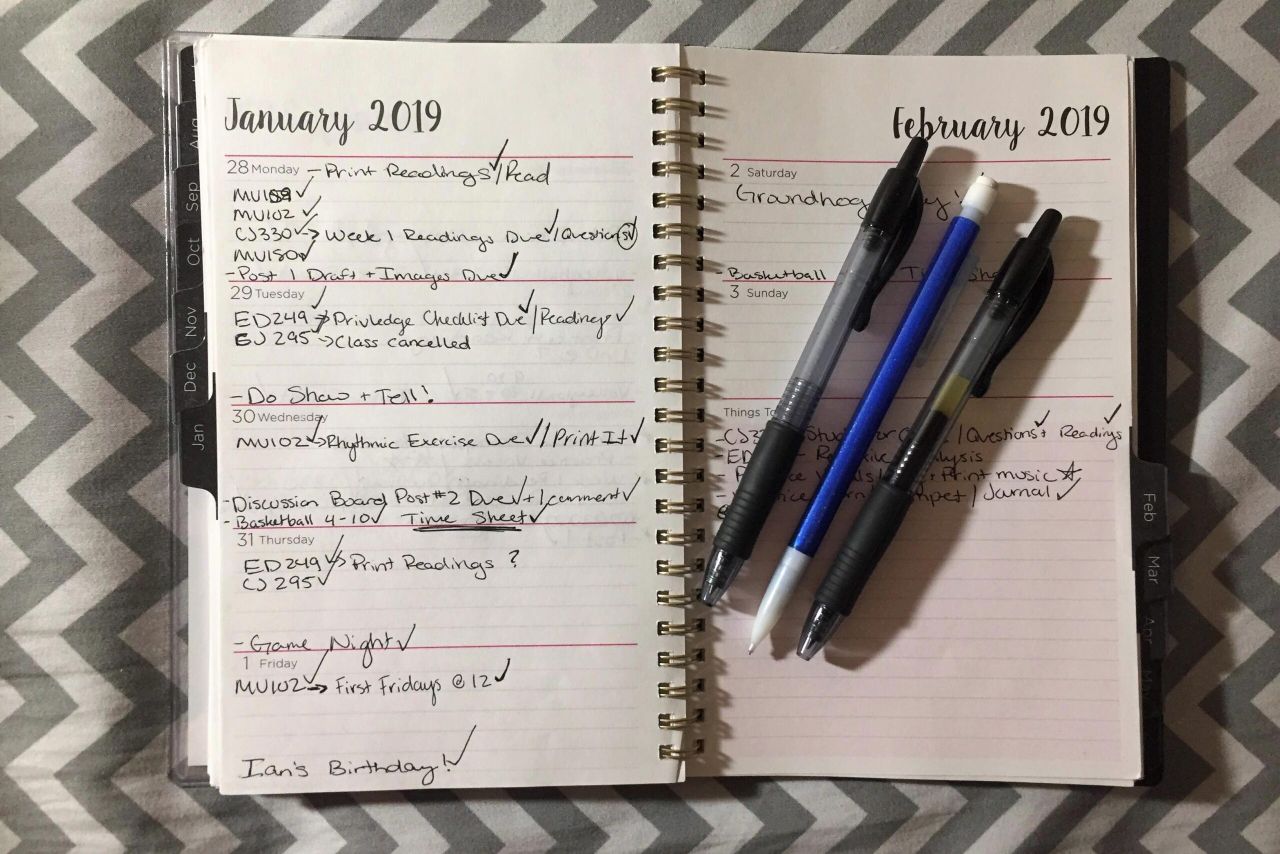I have overloaded three out of four semesters at Arcadia—by choice.
Overloading is when you take more than 18 credits per semester; the usual course load is 16. We aren’t allowed to overload while doing FYSAE, so my first Spring semester was normal. First-semester freshmen are not allowed to overload either, but I ended up taking one of my classes for no credit, which meant I was doing enough work to be overloading without actually reaping the rewards of taking the class. Since I also came in with credits from taking college-level courses in high school, right now, in my second semester as a sophomore, I have enough credits to be considered a senior.
I have always been the type to overfill my plate.
– Kathryn Jones
By this point, you may be wondering why I’ve been overloading so much. While many students overload to graduate early, my motivation is that I have two majors and two minors to fulfill. Other than the requirements needed to complete those degrees, I have always been the type to overfill my plate.
But it isn’t for everyone. Overloading demands serious time management. Here are some tips for getting your work done well and on time.
1. Keep an agenda or to-do list.
Whether on paper or electronically, writing down assignments and other obligations for the day, week, and month is helpful for organizing your thoughts and actions to tackle your workload. Seeing all the work in one place may be overwhelming, so making shorter to-do lists and checking off items as you go might be beneficial. The main takeaway is that having an organized approach to work is a great start to actually getting it done. And starting strong out of the gate will ease your path.

2. Have a set place and time to do your work.
Knowing which environment helps you be productive is a huge advantage when it comes to getting things done. For me, I know that if I’m sitting in my bed, I will start to fall asleep, so I always try to do work sitting in a chair, at a desk. The library, especially the basement and the top floor, is a great place if you want a calm and quiet space to get a lot of work done. If you have trouble starting your work, try having a set time in your schedule to do it. Do you have an hour between classes? Use that time effectively and get work done while your mind is still fresh on the subject!
3. Minimize distractions.
This can be done in part by choosing the right environment to work in. But if, for instance, you know that you get distracted by your phone frequently, recognize this and work to minimize those distractions. Turn it off, put it in a place you can’t see it, or even give it to a friend to hold for you. There are also a number of helpful apps that can do this, like Forest, where you set a time limit and the app grows a tree for you. If you leave the app, the tree dies, which acts as a deterrent to using other apps that may distract you during work. This app also comes as a chrome extension to use on your laptop!
While making your schedule and to-do lists, always remember to include a leisure activity. Let yourself know that it’s okay to take time for yourself even when you have a lot to get done.
– Kathryn Jones
4. Take care of yourself.
The most important thing is to remember to take care of yourself. When overloading, it may be easy to over-schedule yourself. If you are not taking care of yourself physically and mentally, then you’re compromising quality and health. There is no shame in dropping a course or activity if you do not have time or energy. While making your schedule and to-do lists, always remember to include a leisure activity. Let yourself know that it’s okay to take time for yourself even when you have a lot to get done.
If you’re feeling overwhelmed, know that your health is more important than your work. Arcadia offers numerous resources, so don’t hesitate to use them. Counseling Services are free to all full-time students, the Learning Resource Network has tutors to help you in the areas you may be struggling in, and the Writing Center has trained staff to help you in whatever stage of the writing process you are in. Using these resources and knowing how to best help yourself get work done are keys to success for all students regardless of your course load, but especially while overloading.



